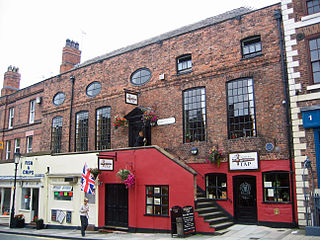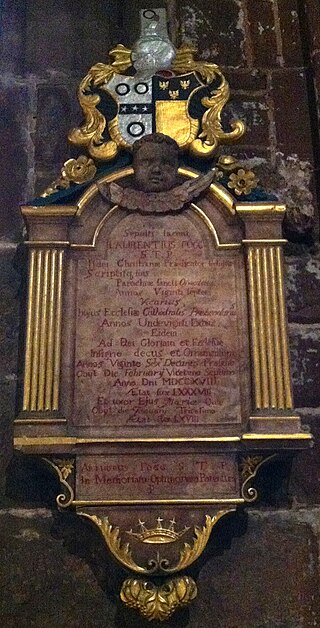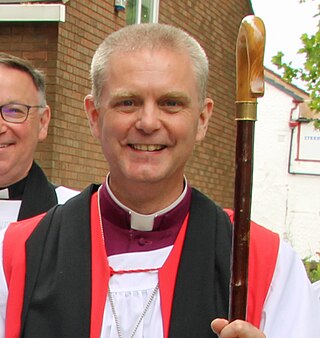
Marmaduke Langdale, 1st Baron Langdale was an English landowner and soldier who fought with the Royalists during the Wars of the Three Kingdoms.

John Byron, 1st Baron Byron KB was an English nobleman, Royalist, politician, peer, knight, and supporter of Charles I during the English Civil War.

Sir Orlando Bridgeman, 1st Baronet, was an English common law jurist, lawyer, and politician who sat in the House of Commons from 1640 to 1642. He supported the Royalist cause in the Civil War.
Robert White probably born in Holborn, a district of London, was an English composer whose liturgical music to Latin texts is considered particularly fine. His surviving works include a setting of verses from Lamentations, and instrumental music for viols.

The Second Battle of Middlewich took place on 26 December 1643 near Middlewich in Cheshire during the First English Civil War. A Royalist force under Lord Byron defeated a Parliamentarian army commanded by Sir William Brereton.

George Lloyd was born in Wales, and became Bishop of Sodor and Man, then Bishop of Chester. He is remembered for Bishop Lloyd's House in Chester, which he had built in the years before his death, and which is recorded in the National Heritage List for England as a designated Grade I listed building.

Sir Francis Gamull, 1st Baronet (1606–1654) was an English politician who sat in the House of Commons from 1640 to 1644. He supported the Royalist side in the English Civil War and was active in the defence of Chester.

Laurence Fogg or Fogge (1623–1718) was dean of Chester.

The Bishop of Chester is the Ordinary of the Church of England Diocese of Chester in the Province of York.
The Battle of Ormskirk was fought on 20 August 1644 during the First English Civil War. It was a decisive victory for the Parliamentarian force commanded by Major-General Sir John Meldrum over the Royalist force commanded by Lord Byron.
Abel Ward was Archdeacon of Chester from his installation on 20 April 1751 until his death on 1 October 1785.
William Powell was an eighteenth century British Anglican priest.
William Golborne was a Bishop of Kildare.
John Thayne or Thane was an English churchman, Archdeacon of Chester in 1707.
John Carter was an Anglican priest.
Cuthbert Bellott was an Anglican priest in the late 16th and early 17th centuries.
Richard Walker (1501–1567) was an English priest in the 16th century.
Thomas Mallory was a seventeenth-century English priest.
This page is based on this
Wikipedia article Text is available under the
CC BY-SA 4.0 license; additional terms may apply.
Images, videos and audio are available under their respective licenses.






